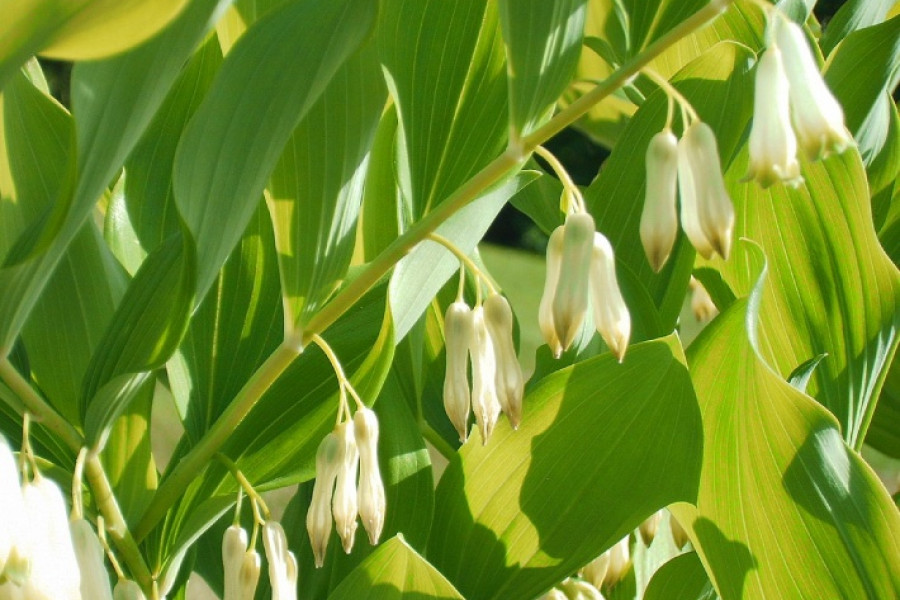There are 30 species of this wonderful medicinal plant in the world, 1 species in Turkmenistan. The snow-white flowers of this medicinal plant are located at the bottom of the leaves. Each piece contains from 2 to 4 long flowers with hats. The length of each flower is approximately 15 millimeters. The fruit of the plant is red. The plant is also known as the Seal of Solomon (also due to its toxicity). The plant flowers in April-May and bears fruit in May-June. In our country, it is more common in Konegyummez, Sayvan, Germap. Enough supplies for medicinal purposes. The plant can be grown. The herb and root of the Polygonatum also acts as a medicinal raw material. Medicinal herb plants are harvested before flowering, and the root in the fall. The plant contains in its diet a large amount of vitamin C, sugar, mucus, saponin, starch, and cardiac glycosides. Polygonatum is used in folk medicine for marks on the stomach, headaches, as a means to stop bleeding. Herbal extract ointment helps with headaches, pain in the stomach and intestines, bloody diarrhea, visual and auditory hallucinations due to impaired consciousness. In addition, the plant has blood-purifying and stopping properties. All of its parts have an emetic effect. Herbs have long been used in Turkmen folk medicine (Makhtumkulinsky, Beherden and Gekdepe regions) as a drug that stimulates and improves blood circulation. A tablespoon of well-chopped Polygonatum's root (15 g) pour two glasses (400 ml) of water, crush the porridge well and cook over low heat for 15-20 minutes in an enameled bowl. The finished medicine should be taken 2-3 times a day from ¼ cup




